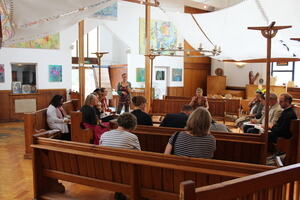Course overview
- Provider
- Futurelearn
- Course type
- Free trial availiable
- Deadline
- Flexible
- Duration
- 2 hours
- Course author
- Andrew Butt
Description
A key issue in a city’s liveability is the availability of mobility options. A healthy urban space is connected by walking paths and cycling trails as well as public transport that links us to our local community services, open public spaces, centres of employment, education, commerce, and affordable and diverse housing.
This two-week course from RMIT University and EIT Urban Mobility will explain how transport impacts the overall liveability of urban spaces. By the end, you’ll have a clear understanding of how mobility relates to the social determinants of health in a city.
Unpack the causal relationship between urban space, mobility, and healthThrough examining the health outcomes at different locations within a built environment, you’ll take a close look at the influences that location, mobility, and health have on each other.
You’ll also get to see the interrelationships between the built and social environment, and thus how this environment has a causal relationship with transport, location, and health.
Explore planning policies’ impact on social determinants of healthAs well as the impacts that existing structures have on each other, you’ll see how local and state planning policies on transport, land use, and health, affect the social indicators of a city’s health. This includes learning about the tools available for measuring these indicators, allowing for evidence-based decisions.
Enjoy a world-class learning experience at RMITWith a strong history of academic excellence, RMIT is ideally suited to offering this short course on the interactions of location, health, and mobility in urban spaces. By the end, you’ll be ready to create cities that are better for their residents and the environment.
Similar courses

-
Flexible deadline
-
2 hours



